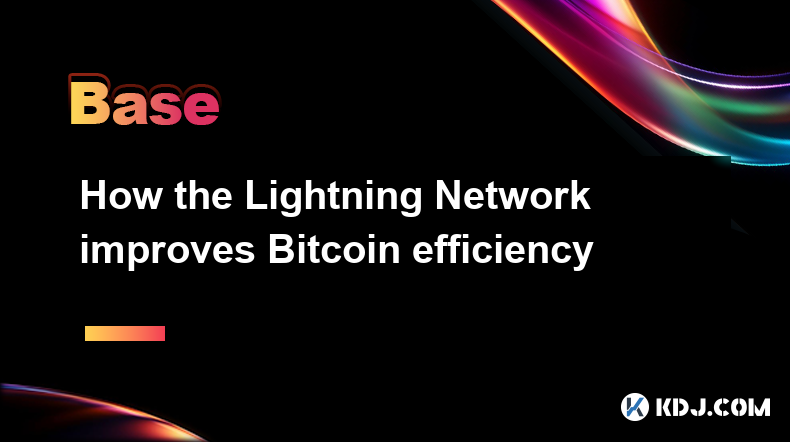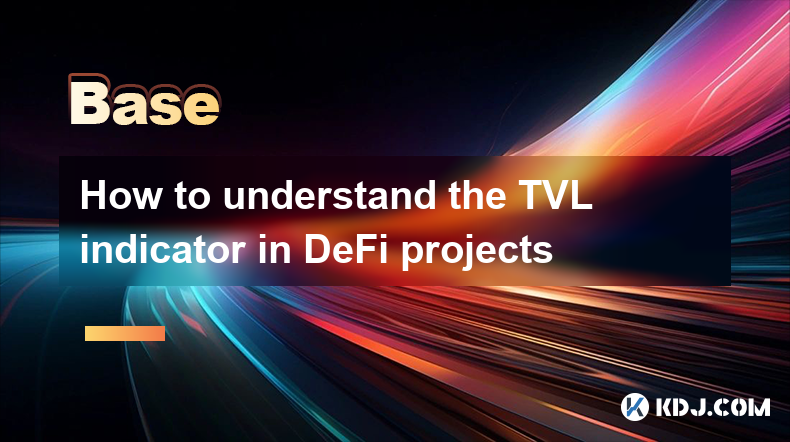-
 Bitcoin
Bitcoin $85,262.3331
0.92% -
 Ethereum
Ethereum $1,597.0506
0.61% -
 Tether USDt
Tether USDt $1.0000
0.01% -
 XRP
XRP $2.0870
0.58% -
 BNB
BNB $590.9891
0.28% -
 Solana
Solana $139.4499
3.66% -
 USDC
USDC $0.9999
0.01% -
 Dogecoin
Dogecoin $0.1582
1.86% -
 TRON
TRON $0.2418
-1.68% -
 Cardano
Cardano $0.6280
2.21% -
 UNUS SED LEO
UNUS SED LEO $9.3593
2.37% -
 Chainlink
Chainlink $12.8312
1.29% -
 Avalanche
Avalanche $19.5769
2.31% -
 Stellar
Stellar $0.2461
1.05% -
 Toncoin
Toncoin $2.9796
-0.37% -
 Shiba Inu
Shiba Inu $0.0...01217
1.72% -
 Hedera
Hedera $0.1660
-0.16% -
 Sui
Sui $2.1379
0.78% -
 Bitcoin Cash
Bitcoin Cash $339.1776
2.72% -
 Hyperliquid
Hyperliquid $18.1573
7.72% -
 Polkadot
Polkadot $3.7260
0.38% -
 Litecoin
Litecoin $76.0878
0.30% -
 Dai
Dai $1.0000
0.01% -
 Bitget Token
Bitget Token $4.4591
2.16% -
 Ethena USDe
Ethena USDe $0.9993
0.02% -
 Pi
Pi $0.6440
5.30% -
 Monero
Monero $214.5782
-1.68% -
 Uniswap
Uniswap $5.2550
0.96% -
 OKB
OKB $50.6289
0.67% -
 Pepe
Pepe $0.0...07209
0.84%
What is Play-to-Earn (P2E)? How does it change the game economy model?
P2E games like Axie Infinity let players earn real-world value through in-game activities, using blockchain for secure, transparent transactions and NFTs for unique assets.
Apr 06, 2025 at 04:15 am

Play-to-Earn (P2E) is a revolutionary model within the cryptocurrency and gaming sectors that allows players to earn real-world value through in-game activities. This model leverages blockchain technology to create a transparent, decentralized system where players can earn tokens or cryptocurrencies by playing games. The core concept of P2E is that players are rewarded for their time and effort spent in the game, transforming gaming from a leisure activity into a potential source of income.
The Mechanics of Play-to-Earn
In a P2E game, players engage in various activities such as completing quests, battling other players, or participating in in-game economies. These activities generate tokens or other digital assets that can be traded or sold on cryptocurrency exchanges. The tokens are often part of a larger ecosystem, where they can be used to purchase in-game items, upgrade characters, or even influence the game's development through decentralized governance.
Impact on Game Economy Models
Traditional game economies are often centralized, with the game developers controlling the supply and value of in-game currencies and items. P2E introduces a decentralized economy where the value of in-game assets is determined by market forces. This shift empowers players, giving them ownership over their digital assets and the ability to monetize their gaming skills and time.
Examples of P2E Games
Several games have successfully implemented the P2E model. Axie Infinity is one of the most well-known examples, where players breed, battle, and trade creatures called Axies, earning tokens that can be converted into real money. Decentraland allows players to buy, sell, and develop virtual land using the MANA token, creating a virtual economy driven by player actions.
Benefits of P2E for Players
For players, P2E offers several advantages. Firstly, it provides an opportunity to earn income while enjoying their favorite pastime. This is particularly appealing in regions where traditional employment opportunities are limited. Secondly, P2E games often have a more engaged and active community, as players have a financial stake in the game's success. This can lead to a more vibrant and dynamic gaming experience.
Challenges and Considerations
Despite its potential, P2E is not without challenges. The volatility of cryptocurrency markets can affect the value of in-game earnings, making it a risky endeavor. Additionally, the initial cost of entry into some P2E games can be high, as players may need to purchase digital assets to start playing. There is also the risk of regulatory scrutiny, as governments may view P2E earnings as taxable income.
Integration with Blockchain Technology
Blockchain technology is fundamental to the P2E model. It provides the necessary infrastructure for secure, transparent transactions and the creation of non-fungible tokens (NFTs), which are unique digital assets that can represent in-game items. Smart contracts automate the distribution of rewards, ensuring that players receive their earnings without the need for intermediaries.
Economic Implications for Game Developers
For game developers, P2E presents both opportunities and challenges. On one hand, it can attract a larger player base and generate revenue through the sale of in-game assets. On the other hand, developers must carefully manage the game's economy to prevent inflation and maintain player interest. Balancing the supply and demand of in-game tokens is crucial to the long-term sustainability of a P2E game.
Community and Governance
P2E games often incorporate decentralized governance models, where players can vote on the game's future development. This can lead to a more democratic and community-driven approach to game design. Players who hold tokens can participate in decision-making processes, influencing everything from new features to the distribution of rewards.
The Role of NFTs in P2E
Non-fungible tokens (NFTs) play a significant role in P2E games. They allow for the creation of unique, tradable in-game assets that players can own and monetize. NFTs can represent anything from characters and weapons to virtual land and artwork. The ability to trade these assets on open marketplaces adds a new layer of economic activity to the game.
Case Study: Axie Infinity
Axie Infinity provides a compelling case study of the P2E model in action. Players start by purchasing Axies, which are NFT creatures that can be bred and battled. By participating in battles and other activities, players earn Smooth Love Potion (SLP) tokens, which can be sold on cryptocurrency exchanges. The game's economy is driven by the demand for Axies and SLP, creating a vibrant marketplace where players can earn a living.
The Broader Impact on the Gaming Industry
The rise of P2E has broader implications for the gaming industry. It challenges traditional business models and encourages developers to explore new ways of engaging with their audience. As more players seek games that offer real-world value, the demand for P2E experiences is likely to grow. This shift could lead to a more diverse and innovative gaming landscape.
Frequently Asked Questions
Q: How do I start playing a P2E game?
- Research popular P2E games such as Axie Infinity or Decentraland.
- Set up a cryptocurrency wallet compatible with the game's tokens.
- Purchase the necessary in-game assets or tokens to start playing.
- Engage in the game's activities to earn rewards.
Q: Are there any risks associated with P2E games?
- Yes, the value of in-game earnings can be volatile due to cryptocurrency market fluctuations.
- There may be high initial costs to enter some P2E games.
- Regulatory changes could impact the taxation and legality of P2E earnings.
Q: Can P2E games be played on mobile devices?
- Yes, many P2E games are available on mobile platforms, allowing players to earn rewards on the go.
- Ensure your device meets the game's system requirements and that you have a secure way to manage your cryptocurrency wallet.
Q: How do NFTs enhance the P2E experience?
- NFTs allow players to own unique, tradable in-game assets.
- They add value to the game's economy by enabling players to buy, sell, and trade these assets on open marketplaces.
- NFTs can represent a wide range of in-game items, from characters to virtual land, enhancing the overall gaming experience.
Disclaimer:info@kdj.com
The information provided is not trading advice. kdj.com does not assume any responsibility for any investments made based on the information provided in this article. Cryptocurrencies are highly volatile and it is highly recommended that you invest with caution after thorough research!
If you believe that the content used on this website infringes your copyright, please contact us immediately (info@kdj.com) and we will delete it promptly.
- Rare 50p coin is being sold online for more than £60,00.
- 2025-04-19 18:30:13
- From $5.2M Paper Profits to a $355,000 Loss: The Rise and Crash of LUCE Meme Coin
- 2025-04-19 18:30:13
- Whale Activity Sends Bitcoin Price Surging
- 2025-04-19 18:25:13
- Canary Capital Has Filed an S-1 Registration with the US Securities and Exchange Commission (SEC) to Launch a Spot Exchange-Traded Fund (ETF) Focused on Tron (TRX)
- 2025-04-19 18:25:13
- XYO Launches Its New Layer-1 Blockchain with a Novel Proof of Perfect Protocol and Native XL1 Token
- 2025-04-19 18:20:13
- Upper Delaware Scenic and Recreational River Invites Nominations for Water Safety Challenge Coin Award Program
- 2025-04-19 18:20:13
Related knowledge

The function of cross-chain bridges in blockchain
Apr 19,2025 at 10:01am
The function of cross-chain bridges in blockchain is a pivotal topic within the cryptocurrency ecosystem, as these tools enable the seamless transfer of assets and data across different blockchain networks. This article delves into the various aspects of cross-chain bridges, explaining their importance, how they work, and the benefits and challenges the...

How the Lightning Network improves Bitcoin efficiency
Apr 17,2025 at 08:56pm
The Lightning Network represents a significant advancement in the Bitcoin ecosystem, aiming to address some of the most pressing issues related to transaction speed and cost. By enabling off-chain transactions, the Lightning Network drastically improves Bitcoin's efficiency, allowing for faster and cheaper transactions. This article will explore how the...

Analysis of the KYC process of cryptocurrency exchanges
Apr 17,2025 at 05:07pm
The Know Your Customer (KYC) process is a critical component in the operations of cryptocurrency exchanges. It serves as a regulatory measure to prevent fraud, money laundering, and other illicit activities. KYC procedures are designed to verify the identity of users and ensure compliance with financial regulations. This article delves into the various ...

What does Floor Price mean in the NFT market
Apr 17,2025 at 12:42am
The term Floor Price is a critical concept within the NFT (Non-Fungible Token) market, serving as a key indicator for both buyers and sellers. In essence, the floor price represents the lowest price at which an NFT from a particular collection is currently listed for sale on a marketplace. This price point is crucial for understanding the perceived valu...

How to understand the TVL indicator in DeFi projects
Apr 17,2025 at 03:28pm
Understanding the TVL indicator in DeFi projects is crucial for investors and enthusiasts looking to gauge the health and popularity of decentralized finance platforms. TVL, or Total Value Locked, represents the total amount of assets that are currently staked or locked in a DeFi protocol. This metric serves as a barometer for the trust and interest tha...

Analysis of the HODL term in digital assets
Apr 18,2025 at 10:28pm
The term HODL has become a cornerstone of the cryptocurrency community, often used with a sense of humor and camaraderie among investors. Originally a typo for 'hold,' HODL has evolved into an acronym standing for 'Hold On for Dear Life.' This article will delve into the origins, significance, and practical implications of HODL within the digital assets...

The function of cross-chain bridges in blockchain
Apr 19,2025 at 10:01am
The function of cross-chain bridges in blockchain is a pivotal topic within the cryptocurrency ecosystem, as these tools enable the seamless transfer of assets and data across different blockchain networks. This article delves into the various aspects of cross-chain bridges, explaining their importance, how they work, and the benefits and challenges the...

How the Lightning Network improves Bitcoin efficiency
Apr 17,2025 at 08:56pm
The Lightning Network represents a significant advancement in the Bitcoin ecosystem, aiming to address some of the most pressing issues related to transaction speed and cost. By enabling off-chain transactions, the Lightning Network drastically improves Bitcoin's efficiency, allowing for faster and cheaper transactions. This article will explore how the...

Analysis of the KYC process of cryptocurrency exchanges
Apr 17,2025 at 05:07pm
The Know Your Customer (KYC) process is a critical component in the operations of cryptocurrency exchanges. It serves as a regulatory measure to prevent fraud, money laundering, and other illicit activities. KYC procedures are designed to verify the identity of users and ensure compliance with financial regulations. This article delves into the various ...

What does Floor Price mean in the NFT market
Apr 17,2025 at 12:42am
The term Floor Price is a critical concept within the NFT (Non-Fungible Token) market, serving as a key indicator for both buyers and sellers. In essence, the floor price represents the lowest price at which an NFT from a particular collection is currently listed for sale on a marketplace. This price point is crucial for understanding the perceived valu...

How to understand the TVL indicator in DeFi projects
Apr 17,2025 at 03:28pm
Understanding the TVL indicator in DeFi projects is crucial for investors and enthusiasts looking to gauge the health and popularity of decentralized finance platforms. TVL, or Total Value Locked, represents the total amount of assets that are currently staked or locked in a DeFi protocol. This metric serves as a barometer for the trust and interest tha...

Analysis of the HODL term in digital assets
Apr 18,2025 at 10:28pm
The term HODL has become a cornerstone of the cryptocurrency community, often used with a sense of humor and camaraderie among investors. Originally a typo for 'hold,' HODL has evolved into an acronym standing for 'Hold On for Dear Life.' This article will delve into the origins, significance, and practical implications of HODL within the digital assets...
See all articles
























































































